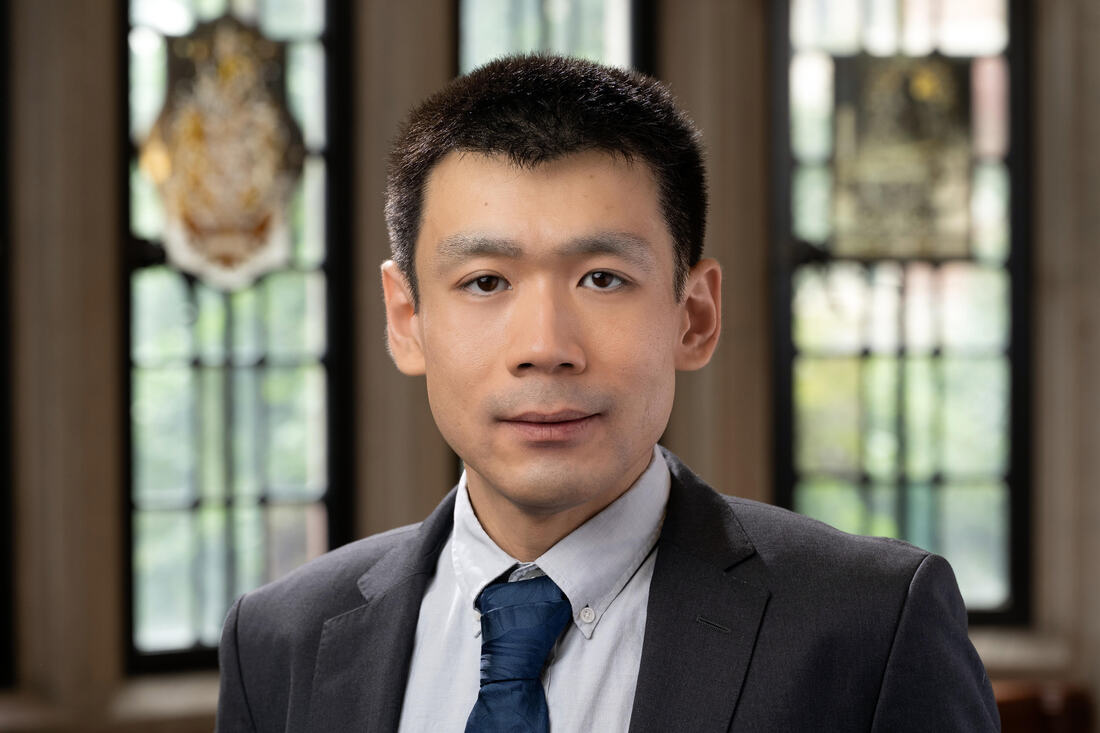|
Shaogeng “Steven” Tang, PhD, Assistant Professor
$200,000 / 2 years Awarded 2024 |
Shaogeng “Steven” Tang, PhDYale University
New Haven, CT About
Dr. Steven Tang is an Assistant Professor at Yale University and a leading scientist in reproductive biology and medicine. His research focuses on sperm-surface recognition and sperm-egg interactions. His group investigates long-standing questions surrounding sperm-egg recognition and membrane fusion during mammalian fertilization. The long-term goal of his lab is to uncover the fundamental design principles of cell-cell fusion and translate these insights into new therapeutic strategies for reproductive medicine. Our Grant
MCI is proud to support this innovative research project focused on developing small-molecule inhibitors that target the sperm fertilization protein IZUMO1. This work has the potential to pave the way for a novel, non-hormonal male contraceptive with significant advantages in efficacy, safety, reversibility, and accessibility. We are excited to partner with Dr. Tang’s research team and contribute to advancing the field of male contraception. |
Publications
Lu, Y., Ikawa, M., Tang, S. Allosteric inhibition of the IZUMO1-JUNO fertilization complex by the naturally occurring antisperm antibody OBF13. Proc Natl Acad Sci U S A. 2025;122(10):e2425952122. doi: 10.1073/pnas.2425952122
Skinner WM, Petersen NT, Unger B, et al. Mitochondrial uncouplers impair human sperm motility without altering ATP content†. Biol Reprod. 2023;109(2):192-203. doi:10.1093/biolre/ioad064
Lu Y, Shimada K, Tang S, et al. 1700029I15Rik orchestrates the biosynthesis of acrosomal membrane proteins required for sperm-egg interaction. Proc Natl Acad Sci U S A. 2023;120(8):e2207263120. doi:10.1073/pnas.2207263120
Tang S, Lu Y, Skinner WM, et al. Human sperm TMEM95 binds eggs and facilitates membrane fusion. Proc Natl Acad Sci U S A. 2022;119(40):e2207805119. doi:10.1073/pnas.2207805119
Lu, Y., Ikawa, M., Tang, S. Allosteric inhibition of the IZUMO1-JUNO fertilization complex by the naturally occurring antisperm antibody OBF13. Proc Natl Acad Sci U S A. 2025;122(10):e2425952122. doi: 10.1073/pnas.2425952122
Skinner WM, Petersen NT, Unger B, et al. Mitochondrial uncouplers impair human sperm motility without altering ATP content†. Biol Reprod. 2023;109(2):192-203. doi:10.1093/biolre/ioad064
Lu Y, Shimada K, Tang S, et al. 1700029I15Rik orchestrates the biosynthesis of acrosomal membrane proteins required for sperm-egg interaction. Proc Natl Acad Sci U S A. 2023;120(8):e2207263120. doi:10.1073/pnas.2207263120
Tang S, Lu Y, Skinner WM, et al. Human sperm TMEM95 binds eggs and facilitates membrane fusion. Proc Natl Acad Sci U S A. 2022;119(40):e2207805119. doi:10.1073/pnas.2207805119
Meet MCI's Grantees & Fellows!
Our grantees and fellows represent some of the finest minds in the male contraception research community from around the world.
At Male Contraceptive Initiative, we prioritize funding research that aligns with our mission of driving male contraception closer to clinical trials. We strategically allocate our resources to support a diverse range of projects, focusing on non-hormonal and reversible methods that have the potential to meet the needs of a broader population. Our goal is to catalyze progress in this field and bring innovative male birth control options to market.
Discover the innovative research being conducted by our grantees and fellows by clicking on the buttons below:
At Male Contraceptive Initiative, we prioritize funding research that aligns with our mission of driving male contraception closer to clinical trials. We strategically allocate our resources to support a diverse range of projects, focusing on non-hormonal and reversible methods that have the potential to meet the needs of a broader population. Our goal is to catalyze progress in this field and bring innovative male birth control options to market.
Discover the innovative research being conducted by our grantees and fellows by clicking on the buttons below:

